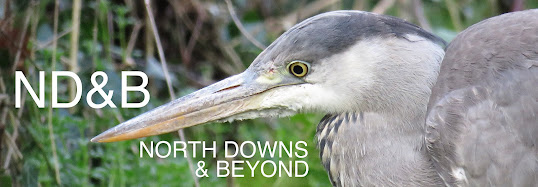Number 4 - House Martin exodus
Number 4 - 23rd September 1989 - House Martins at Dungeness
It had already been a good weekend, with a Honey-buzzard, two Marsh Harriers, a Sparrowhawk and 10 Kestrels coasting down the peninsula and heading out to sea, plus a Red-necked Phalarope giving corking views on Hooker's Pit. Sunday morning dawned overcast with a light WSW wind that then backed WNW. It was not until 08.00hrs that a few House Martins decided to appear, with up to 300 gathering on the wires by The Britannia public house. After the raptor movement of the day before I had decided to position myself on top of the moat, a raised circular bank close to the observatory. And then, some unseen hand flicked the migration switch to on, and it started...
At first there were but few House Martins making their way past me, in a leisurely style, low and to the S/SW. But as each minute passed, the numbers built. It was still manageable to keep a count, although the trickle of hirundines had become a steady flow. It then became a flood. It was as if a dam had burst and the resulting deluge fell upon the air across Dungeness. I didn't know where to look as I was surrounded by flying feathered bullets, zipping past with urgent purpose, nature propelling them onwards and southwards. In my elevated position I had birds to the left, right, above and below me, some almost clipping my head. I couldn't possibly count them, but count them I must. I could look across the open vista, maybe to a distance of 800m and be sure that the stream was on a wide front. I looked up into the sky and could be happy that the birds were pouring through at height as well as low across the shingle. I conducted frequent counts over a minute throughout the next two hours and knew that they were moving through at a minimum of 500 per minute. This did not let up. That's 30,000 an hour. I couldn't possibly have seen them all. By 13.00hrs it was all but over, just a dribble left, latecomers whose migration impetus was not as urgent or whose journey had begun much further inland. My considered (and underestimated) total for the morning was of 90,000. It was a spectacle that I have yet to equal. There were other birds caught up in the movement: Short-eared Owl (1), Turtle Dove (1), Swallow (5,000), Sand Martin (100), Meadow Pipit (300) and Reed Bunting (20). But it was 90,000 white rumps, speeding towards Africa, that stole the show.
It had already been a good weekend, with a Honey-buzzard, two Marsh Harriers, a Sparrowhawk and 10 Kestrels coasting down the peninsula and heading out to sea, plus a Red-necked Phalarope giving corking views on Hooker's Pit. Sunday morning dawned overcast with a light WSW wind that then backed WNW. It was not until 08.00hrs that a few House Martins decided to appear, with up to 300 gathering on the wires by The Britannia public house. After the raptor movement of the day before I had decided to position myself on top of the moat, a raised circular bank close to the observatory. And then, some unseen hand flicked the migration switch to on, and it started...
At first there were but few House Martins making their way past me, in a leisurely style, low and to the S/SW. But as each minute passed, the numbers built. It was still manageable to keep a count, although the trickle of hirundines had become a steady flow. It then became a flood. It was as if a dam had burst and the resulting deluge fell upon the air across Dungeness. I didn't know where to look as I was surrounded by flying feathered bullets, zipping past with urgent purpose, nature propelling them onwards and southwards. In my elevated position I had birds to the left, right, above and below me, some almost clipping my head. I couldn't possibly count them, but count them I must. I could look across the open vista, maybe to a distance of 800m and be sure that the stream was on a wide front. I looked up into the sky and could be happy that the birds were pouring through at height as well as low across the shingle. I conducted frequent counts over a minute throughout the next two hours and knew that they were moving through at a minimum of 500 per minute. This did not let up. That's 30,000 an hour. I couldn't possibly have seen them all. By 13.00hrs it was all but over, just a dribble left, latecomers whose migration impetus was not as urgent or whose journey had begun much further inland. My considered (and underestimated) total for the morning was of 90,000. It was a spectacle that I have yet to equal. There were other birds caught up in the movement: Short-eared Owl (1), Turtle Dove (1), Swallow (5,000), Sand Martin (100), Meadow Pipit (300) and Reed Bunting (20). But it was 90,000 white rumps, speeding towards Africa, that stole the show.


Comments